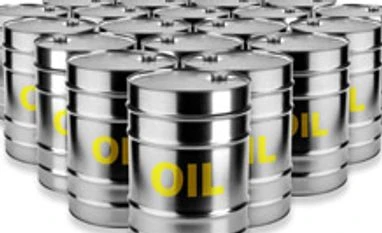Brent futures held above $111 a barrel on Tuesday on worries about a prolonged outage from OPEC member Libya, positioning the benchmark to end 2013 virtually unchanged.
Fears of supply disruptions in the Middle East and Africa have offset concerns during the year about weak global demand, keeping Brent trading in a $22 range from $96.75 a barrel to $119.17 a barrel.
But the US benchmark looks set to end 8% higher for 2013, recouping a 7% loss the previous year and giving it gains in four of the past five years.
Brent crude rose 5 cents to $111.26 a barrel by 0317 GMT, after settling 97 cents lower in the previous session. US oil gained 7 cents to $99.36 after ending $1.03 down.
"I think we will see similar sideways trading in oil next year. Markets will be volatile, but prices will stay in range," said Ric Spooner, chief market analyst at CMC Markets in Sydney. "Key factors for the market next year will be on the supply side and global economic growth."
Spooner expects Brent to trade between $90 and $120 a barrel next year, and the US benchmark to hold an $85-$115 range. The spread between the two contracts may widen as much as it did this year, but should average about $5 a barrel for the year, he said.
Also Read
Growing unrest in key exporter Iraq, simmering tensions between Iran and the West over Tehran's disputed nuclear programme and outages in Libya towards the later part of the year, all helped to keep oil supported.
That offset worries of a weak demand outlook in industralised nations and a slowdown in consumption in China, the world's second-biggest oil consumer.
SUPPLY WORRIES
The Hariga oil port, which officials had said was to open soon, remained shut on Monday, as the paralysis of Libya's oil sector continued. Hariga has been shut since August.
Militias, tribesmen and civil servants have seized ports and oilfields to press for political or financial demands, drying up output to less than 250,000 bpd from 1.4 million bpd in July.
In Iran, a breakthrough deal last month with world powers over a decade-long dispute over the Islamic Republic's nuclear programme have somewhat eased tensions, but its exports have fallen by more than half to 1 million barrels per day (bpd) due to tough sanctions imposed by the West.
Violence in Iraq has spiked this year as al Qaeda-linked militants target the government and anyone seen to be supporting it, raising fears of a return to the sectarian conflict of 2006-7 that killed tens of thousands, keeping investors worried about a disruption in shipments from the country.
"Further progress on improving relations with Iran, removal of more sanctions, unrests in Iraq and Libya restoring production capabilities are some of top issues for the market," said Spooner.
Investors will also be watching for further developments on the United States tapering its monetary stimulus. While the tapering would suggest the world's biggest economy is gaining steam, it would also reduce the availability of the dollar, weighing on commodities that are priced in the currency such as oil.
)